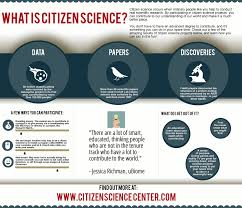Citizen Science is considered as a fantastic and new way for the public to assist scientists with their work. This scientific research conducted partially or fully by. amateur and non-professional scientists allows public participation in scientific research. This participation can not only help in providing outcomes that advance scientific research, but also increase the public’s understanding of science.
Not only is there a benefit from more advances in science and increase public exposure to the science done by professionals, citizen science is a great way for those interested in this work to donate their computing power and get involved. Citizen science is a great way for the public to get involved and learn more about the work being done by scientists that will help shape the world around them. Another benefit of citizen science is that the accompanying organizations can get free computing power from those who are willing and able to support the science. This can help supplement the research done by the scientists in a faster timeframe than could be expected.
When utilizing citizen science, one has to consider some legal and ethical issues that have required to be addresses regarding how the data is used and how those involved are notified. Considerations must include how to provide proper credit and citation for those who make the discoveries and assist, what information can be shared out with the public to assist with, and which industries can citizen science be utilized. An example of this is that helping to process Hubble Telescope images might not have any ethical concerns due to the work being related to image processing, but for something like biomedical research or disaster recovery, there are real concerns. For citizen science relating to a topic that relates to life and death, there have to be concerns around who can access and view data relevant to personal information and can be strictly regulated by government laws.
That said, citizen scientists have several specific areas of benefit, including astronomy. Amateur astronomers have commonly built their own equipment to determine many different things. Amateur astronomers have made contributions that include observing comets and stars to measure the local level of artificial skyglow. Moreover, citizen scientists can assist by observing celestial objects and making other observations such as transits.
For those who are unable to observe in the field, there are some great software options. They include SETI at home and much more as shown in the article below. The IAU has a great list of different opportunities which can be found here.
There are a plethora of sources to find the projects, including Federal Governments at https://www.citizenscience.gov/#
https://www.skyandtelescope.com/online-resources/list-citizen-science-projects/

Be the first to comment on "Citizen Science"